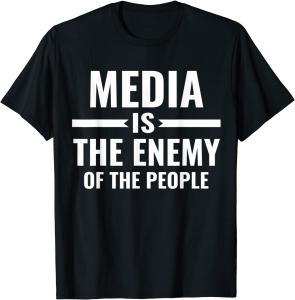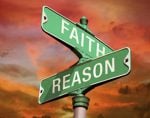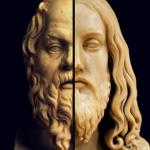I am not a regular reader of Christianity Today, but the title of Jon Ward’s 5/11/22 article caught my eye. Ward is the chief national correspondent for Yahoo News; the title of his CT article is “Being a Political Journalist Made Me a Better Christian.” CT presents itself as a primary media voice for evangelical Christianity; knowing that, as Ward describes, “many conservative Christians are told that the media is evil—almost as bad as Democrats, or maybe worse,” this title promised an interesting article. I was not disappointed.
Ward writes that when speaking with young people about his profession, he is frequently asked “Is it hard to be a Christian and a journalist?” The question, he knows, comes from certain commonly held assumptions.
They visualize me going to work surrounded by debauched atheists who did lots of drugs and had lots of drunken sex and read atheist propaganda.
I strangely resonated with Ward’s situation, since I have frequently been asked “Is it hard to be a Christian and a philosopher”? over the years. As Ward explains why, contrary to assumptions, being a journalist has caused him to be a better Christian, I found myself resonating even further, since many of the features of his profession are shared (or should be) by academics.
Here is how Ward described some of the skills developed by and tools used in journalism that he has found to be directly applicable to his life of faith. These lead to his conviction that “Journalism has empowered many of the most noble, the most Christian elements of my character.”
- I have been discipled . . . in how to discern what is true and false, and—probably more importantly—how to discern when there are no easy answers or solutions.
- I have been trained in pursuing truth without regard to whom it offends.
- I have also been given a sense of humility about what we can know for sure and how often we need to acknowledge that our point of view is limited and incomplete.
- I have been free to listen, to consider, to agree or disagree, and to follow whichever direction the evidence pointed to on each issue.
Ward writes that “journalism is one of the few circles in which speaking up against one’s own group, against groupthink in one’s own culture, is generally encouraged and rewarded. It is far more valued than in most other tribes.” I agree that tribes which value developing the ability to tell discern between truth and bullshit, epistemological modesty, and valuing the truth over what one wants to believe are few and far between. But this all sounded familiar to me, because at its best, my academic tribe also values these abilities.
One of colleagues from the philosophy department, the winner of my college’s “teacher of the year” award last year (shamless self-promotion–I won it 18 years ago), had the privilege of giving greetings from the faculty at the annual awards ceremony honoring a number of graduating seniors on the Friday of our recent graduation weekend. He quoted the great Immanuel Kant in his challenge to the graduating seniors: “Have the courage to use your own intellect.” Earlier during the ceremony our college President said something similar when summarizing the graduates’ four years of education. “You have learned to think,” he said. “You have learned to learn.”
These are skills that could, if taken seriously and developed widely, significantly change our current culture of tribal polarization. It is a huge challenge, because as Ward writes, “Whatever group you are in, it will punish you for believing or saying the ‘wrong’ things and reward you for supporting what they support. This problem exists in all groups, mainstream journalism included.” It certainly exists in all manners of organized religion.
Why does Ward (and why do I) think that developing the skills of lifetime learning just might also help strengthen and expand one’s faith? Because faith is not about tribalism, nor is it about owning the truth, certainty, or making claims that cannot possibly be justified. The skills of journalism, as well as the skills of academic scholarship, are skills that are at the heart of a dynamic faith, a faith that recognizes no borders drawn out of fear or desire for power.
Christians should cross many borders. They should belong to parties and stand outside of them. They should even cross between parties at times, never pledging unswerving allegiance to either. They should be deeply invested in working toward the good of this country and this world, while remembering that their citizenship is in heaven and their hope is in Christ, come what may.
Pilate famously asked, “What is truth?” Jesus’ said, equally famously, “You shall know the truth, and the truth shall set you free.” Learning to pursue the truth is the beginning of freedom.
A close friend and dedicated person of faith asked me many years ago, shortly after I earned my Ph.D., a question that has in many ways shaped my life ever since. “How can you be a philosopher and a Christian at the same time?” she wondered. My best answer, which is still developing more than 30 years after she asked the question, is that intellect challenges faith with questions, with doubt, while faith provides a framework within which you can be free and fearless to ask those questions. Faith provides a certain amount of security that lets you be fearless, because you know that the answers are there, even if you might never fully know what they are.












